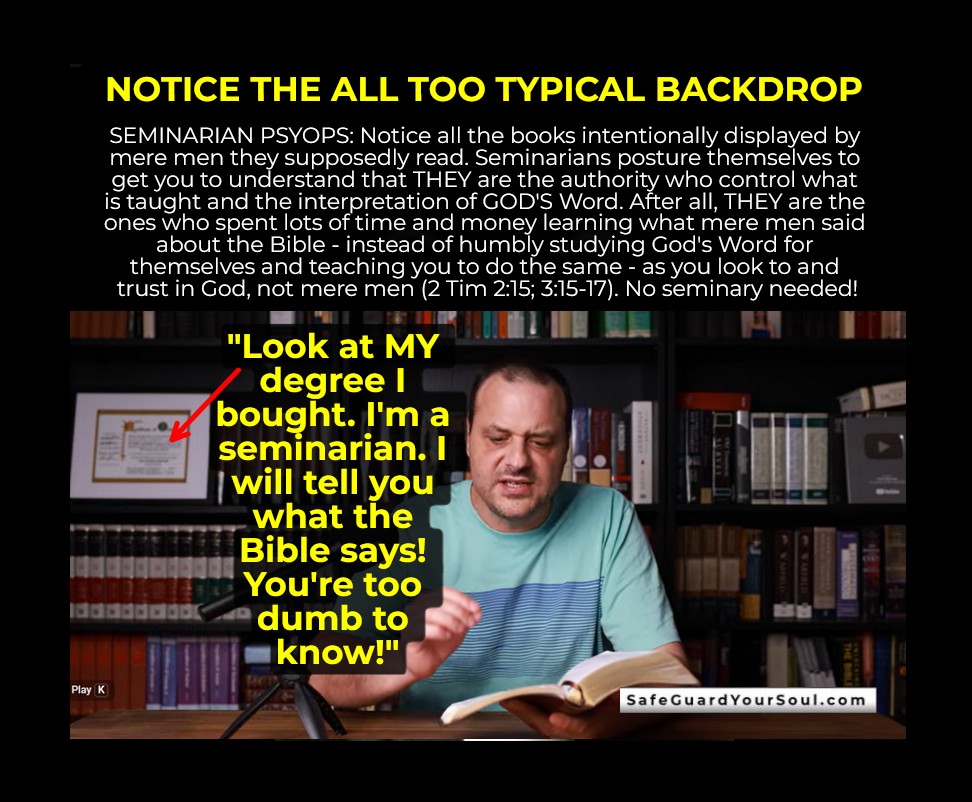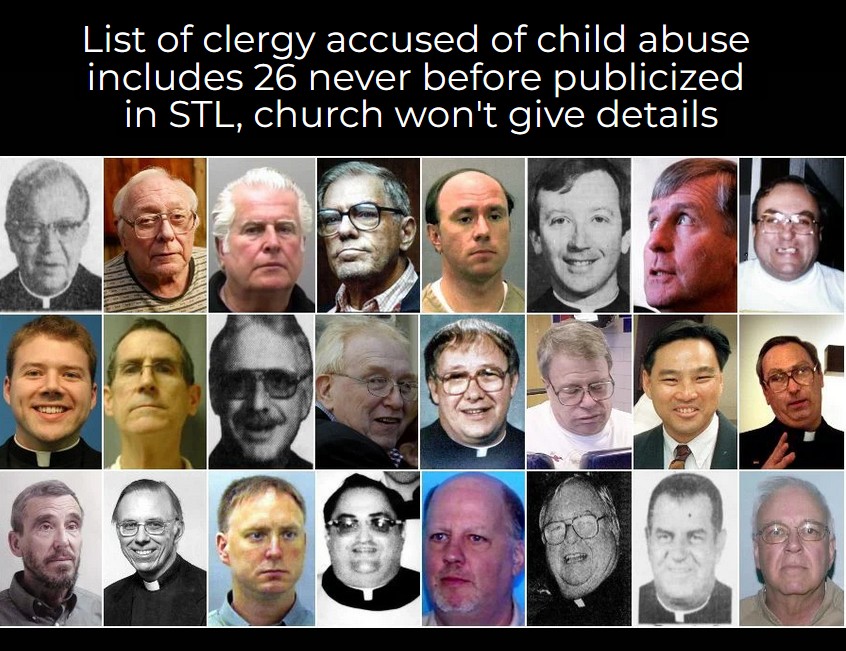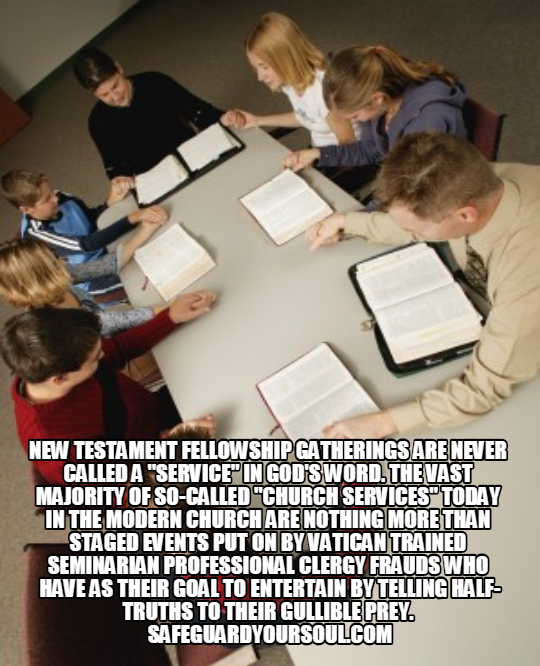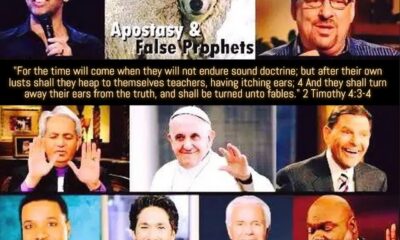IF you have this man’s books, you must repent of the spiritual adultery of seeking wisdom outside of the LORD and burn them at once or devils will have access to you and your family and home. See Devil’s and Inanimate Objects
What Does Motivational Teacher Stephen Covey Really Believe?
Dr. Michael H. Reynolds
PROVO, UT—Stephen Covey is a world renowned teacher, motivational leader and time management consultant. He, his Covey Leadership Seminars, books and other materials are sought after by Christian denominations, churches, businesses, schools, universities and seminaries. Many defend him strongly while others are wary of this member of the LDS church from Utah who has served his church as a missionary, bishop, mission president, and regional representative of the Quorum of the Twelve Apostles along with his duties as a professor at the J.W. Marriott school of business at BYU.
In his best selling book Seven Habits of Highly Effective People Covey says: “To the degree which we align ourselves with correct principles, divine endowments will be released within our nature enabling us to fulfill the measure of our creation.” What are these principles and endowments that Mr. Covey speaks of? What does he really believe about God, Jesus, the trinity, salvation by grace and other essential Christian doctrines?
Let us take a few moments and ask him by using The Divine Center, a book written by Covey which states in clear terms just what he believes. It was first published in 1988 by Bookcraft, an unofficial Mormon publishing house. In interview format we will ask him just what Stephen Covey believes and let him give the answers. The page numbers that follow are from the book The Divine Center.
*Mr. Covey, you are a world renowned author and speaker and many people from many different walks of life look to you for advice and help. What do you see as your main purpose in writing and speaking?
“For many years I have felt and seen the need for an organizing principle in life, a principle that would enable us to get a handle on things . . . My central purpose is to invite readers to examine their faith and lives from a fresh perspective or angle and consequently deepen their commitment to the gospel of Jesus Christ.” (p. IX)
*That certainly sounds good, except that most historical Christians would speak of deepening their commitment to the person of Jesus. Who do you see Jesus to be?
In quoting Apostle Bruce R. McConkie Mr. Covey said, @”Our relationship with the Son is one of brother or sister in the pre-mortal life…”(p. 72)
*What kind of relationship do you think people should have with Jesus?
“I am not indicating any kind of `special’ relationship with him or any other approach that scriptures and modern day prophets would not clearly sanction.”(p.67-68)
*How do you view the relationship between the centrality of Christ in a person’s life and the concept of grace?
“Rather naturally we associate that emphasis with such false concepts as easy salvation by grace alone….We should not allow apostate doctrines and interpretations to preempt in any degree the unquestioned centrality of the Savior to the true gospel we enjoy and to our individual lives.” (p. 68)
*Mr. Covey, I am sure that we would both agree that the church is very important in the life of a Christian. What do you see as the purpose of the church?
The purpose of the Church is to help save all of the living and the dead. To do this it has three essential missions: to preach the gospel to those who have not received it; to perfect the Saints, or those who have received it; and to redeem the dead. (p. 51)
*One of the essential doctrines of historical Christianity is the doctrine of the trinity. What do you think of this doctrine and what do you think it does?
“One of the great behavioral consequences of the apostate doctrine of the Trinity, in which God manifests himself in different ways, is to lead people to believe that we are a creation of God rather than his literal offspring.” (p.82)
*Well, that is not exactly what the Christian doctrine of the trinity is. But for the time being we’ll let that slide. It does bring to mind another point. What do you think of the doctrine of God?
“…Elder Lorenzo Snow (a former prophet of the LDS Church) summarized in his couplet: `As man now is, God once was; As God is, man may become.” (p.81).
*Mr. Covey, how do you think that you can convey your concepts and the LDS gospel to non-Mormons?
“I have found in speaking to various non-LDS groups in different cultures that we can teach and testify of many gospel principles if we are careful in selecting words which carry our meaning but come from their experience and frame of mind.” (p.240)
ConclusionThe Divine Center was obviously written for a Mormon audience and as such we can get to know the real Stephen Covey. Nothing is hidden behind vague statements about God, the scriptures or words like principles and endowments. In the pages of this book Mr. Covey states that the doctrine of the trinity is apostate, denies the concept of salvation by grace alone, gives a completely heretical view of God and offers a purpose for the church that no historical/biblical Christian would ever recognize. The Divine Center shows that not only is Stephen Covey a member of the LDS church, but his own beliefs which form the basis of his principles in all of his other books are clearly and directly opposed to evangelical Christian doctrine. Devil’s and Inanimate Objects
Sign up here to receive the Moments with My Master email sent out to edify Christ’s body.
Articles
Mission Mexico Part 32

“So mightily grew the word of God and prevailed.” Acts 19:20
See picture below.
I recently, “accidently” drove up this very narrow street only to realize that there was no turn around at the end. As God would have it, this man helped me back out of that street and received the spoken Word and a JESUS tract. Romans 8:28 right?
“Ephesians 3:20 was the very verse I prayed for you and the ministry this morning! And v16 as well. May the Spirit of God manifest His full grace and peace upon you today! And give you fruit, more fruit and much fruit! Amen.” Karen Cochran
(see picture below)
It dawns on me afresh today as it has since arriving here in Mexico, that these precious people so deeply hunger for Christ. Today, upon ministering to Victor and Juan and having Victor incessantly asking me about Christianity, Jesus, and being saved…. this was a fresh reminder of the great hunger and openness of the Mexican people. They want Jesus. Plain and simple. “HOW shall they hear without a preacher?” (Romans 10:14)
These two men were excited to know that you would be lifting them in prayer.
Victor and I are now connected by phone. So he will now be fed the Word of our God and be introduced to Spanish speaking disciples of our LORD Jesus.
Being limited in Spanish, I preached the Gospel, the Bible truth I am able to in Spanish and that including exhorting them both, today to repent and receive Jesus and did this while pointing to the prayer (oracion) on the back of the JESUS tract.
Would you like to kindly pause to lift these 2 dear men in prayer to our LORD?
JUST got a call from sister Teri in FL and had the opportunity to speak with brothers Scott and Jorge who were both recently saved by Jesus. Was also blessed to speak with a brother named Raymond who is a flourishing disciple of Jesus!
Thank you for your prayers and support which include our bless-ed opportunity of helping this group of disciples in FL.
Jesus is coming!
Recently…… Many received God’s Word today.
Brother Mark has recently joined in helping with our LORD’s Gospel in Mission Mexico and was amazed when he saw three grown men walking together who were ministered to and walk away, each of them with the JESUS tract open, as they walked read the message. They are that hungry.
The Mexico people deserve to hear our LORD’s glorious Gospel!
“I bet brother Mark is amazed at the response of the Mexican people when you guys go out and minister to them. To have so many hearts open and poor in spirit would be a shock at first. Total opposite of America—who say ‘I am rich, increased with goods have need of nothing!’ Revelation 3:17.
Praise God for the blessed ones who heard the engrafted word of our Lord, which is able to save their souls.” Karen
REPLY:
Yes He is amazing. They WANT it. They DESIRE it. They are like the woman who desires a man and so he marries her and they have a super blessed marriage for life. Instead of the wicked Jezebel woman who just wants to self-servingly shop for the man she can use to accomplish her selfish agenda.
“I was reading Mathew 21:23 this morning and it went through my mind that is what God said to America! ‘The kingdom of God shall be taken from you, and given to a nation bringing forth the fruits thereof.’ And that nation is Mexico!“ Karen
“Truly amazing what God is doing in the hearts of the Mexican people. And now He is raising up disciples to bring into the harvest. He is LORD of the harvest. Have you heard of Chick Publications? I just read that they have sent 200,000 tracts to a Mexico missionary and more being ready to be sent. Southern Mexico. So God is sure flooding Mexico with His Word!” Karen Cochran
While walking over to get a haircut, I happened to spot a JESUS tract someone had placed on this vehicle. No it was not me. I didn’t put that tract there. Someone else did.
Then, 5 minutes later, after arriving at barber and sitting down in the chair, straight ahead in my line of sight, there’s a JESUS tract purposely set on display by the barber.
No matter how high prices get in Mexico, your cost of living will always be MUCH less than the USA. A raise awaits you, soon as you cross the border. Is God prompting you to “Go”? (Mark 16:15)
God is good all the time as you well know and thank you.
Your prayers to the Father in the name of our LORD Jesus are the heavenly fuel He uses to bless and empower and supply His people to do His work.
“For I know that this shall turn to my salvation through your prayer, and the supply of the Spirit of Jesus Christ,” Philippians 1:19
todd
Yes Jesus is saving souls—the very mission He came to accomplish for all who will, right?
“And the Spirit and the bride say, Come. And let him that heareth say, Come. And let him that is athirst come. And whosoever will, let him take the water of life freely.” Revelation 22:17
Every man in the picture below gladly received the spoken and printed Word (JESUS tract Spanish).
Beloved Maria.
HINT: There is plenty of opportunity to contribute to Mission Mexico. We are going to continue to feed the poor and minister Christ’s Gospel – regardless of the fumes we are presently operating on. Thank God for those who are praying and supporting. This opportunity to obey God, lies in front of each of us. What shall we do?
“It is more blessed to give than to receive.” Acts 20:35
To say that this ministry is under-funded is an understatement.
Mission Mexico – See more here.
Download. Read. Print out your supply of the JESUS tract – English and Spanish.

Articles
Chosen for Holiness [podcast]
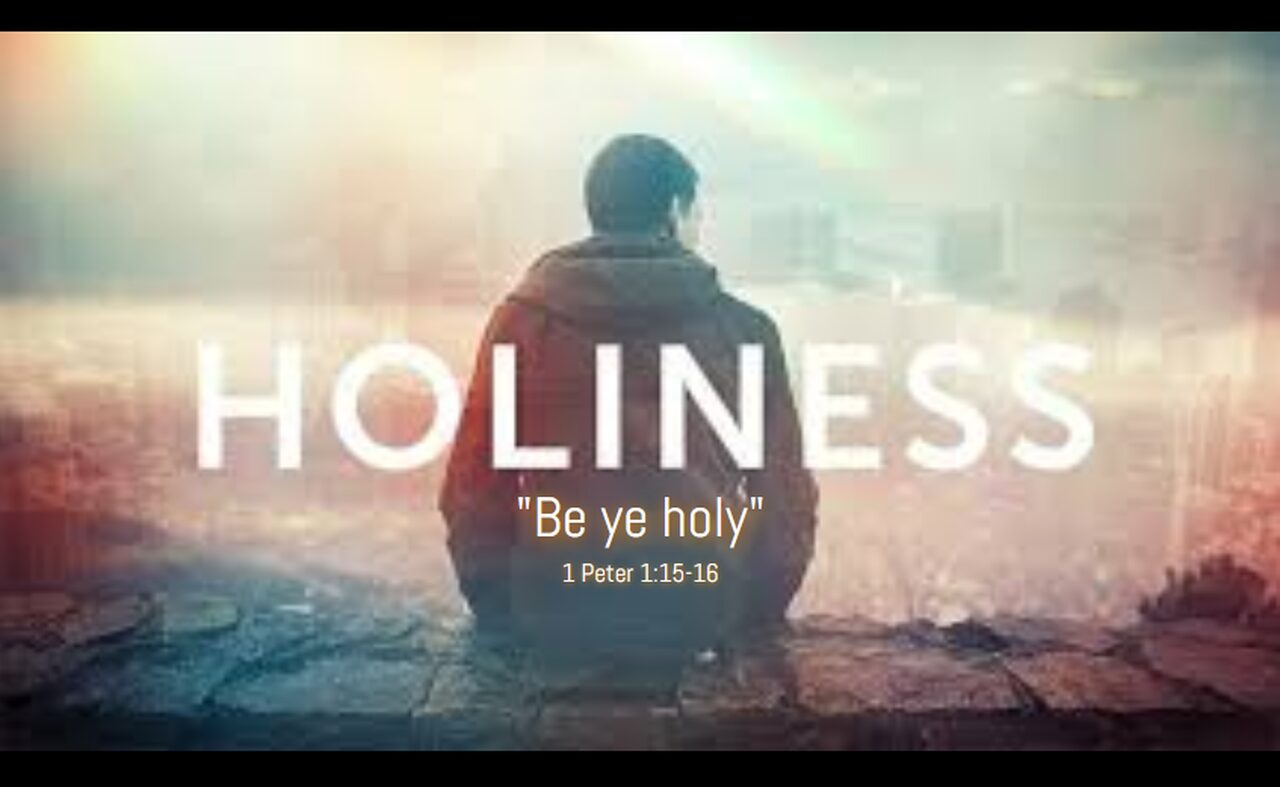
“According as he hath chosen us in him before the foundation of the world, that we should be holy and without blame before him in love:” Ephesians 1:4
Holiness comes by the Savior in self denial (death and burial – the cross), not by self will or effort. Surrender is the cross – “NOT my will but thine be done” (Lk. 22:42) and “Father, into thy hands I commend my spirit” (Luke 23:46). We surrender to Christ by saying “Not my will but thine be done” dear Lord, by Your grace and the deliberate act of my own will I submit to the cross, the crucified life – where You alone reign supreme in this vessel (Luke 22:42; Galatians 2:20, etc.). I love You LORD Jesus! You must increase but I must decrease! (John 3:30)
Holiness, not happiness, is the divine command, the chief purpose and end of Christ’s salvation.
Of holiness, one disciple writes:
“Holiness speaks more to nature than it does conduct. Good conduct is the spontaneous byproduct of the new nature of the new creation man thru the cross and death to the old nature. We are new creatures in Christ (2 Cor. 5:17-18). To preach holiness as conduct without the new nature thru the cross understanding is legalism. Holiness is actually derived from ‘wholeness’ meaning the thorough transformation of the whole tripartite man (1 Thess 5:23). So many of these ‘holiness’ preachers are preaching nothing but conduct under law. Law arouses sinful passions and causes sin to increase and was given in order to provoke transgressions (Rom 7:5; 5:20; Gal 3:21). They are enemies of the cross!”
Holiness comes by way of the cross, not by way of the flesh. Just as sin was conquered by the cross of Christ, so sin in the life of the saint is conquered by the daily cross – the crucified life (Luke 9:23-24; Romans 6; Galatians 2:20; Colossians 3:3, etc.). It’s time to stop trying harder and to simply die deeper.
NOTICE: When a believer or group of believers backslides, they no longer separate from the transgressors who are unrepentant:
Fornication Defiles
“It is reported commonly that there is fornication among you, and such fornication as is not so much as named among the Gentiles, that one should have (Gr. possessed and wouldn’t repent) his father’s wife. 2 And ye are puffed up, and have not rather mourned, that he that hath done this deed might be taken away from among you.” 1 Corinthians 5:1-2
Support | STORE | Podcasts | Jail/Prison Ministry | Mexico Mission here | All Ministry Updates | Hell | Becoming Rooted and Grounded in Christ | Bride of Heaven vs Harlot from Hell [podcast] | Fresh Start with God | Peace with God | Jesus is Coming Just as He Promised [podcast] | Having No Part Dark [podcast] | An Angry Man in Hell | Tormented in this Flame | Wolves Exposed | The High Treason of False Leaders | A Quick Nugget on Discerning Wolves | Knowing Your Enemy [podcast] | Is God Faithful to save us if we aren’t faithful to Him?
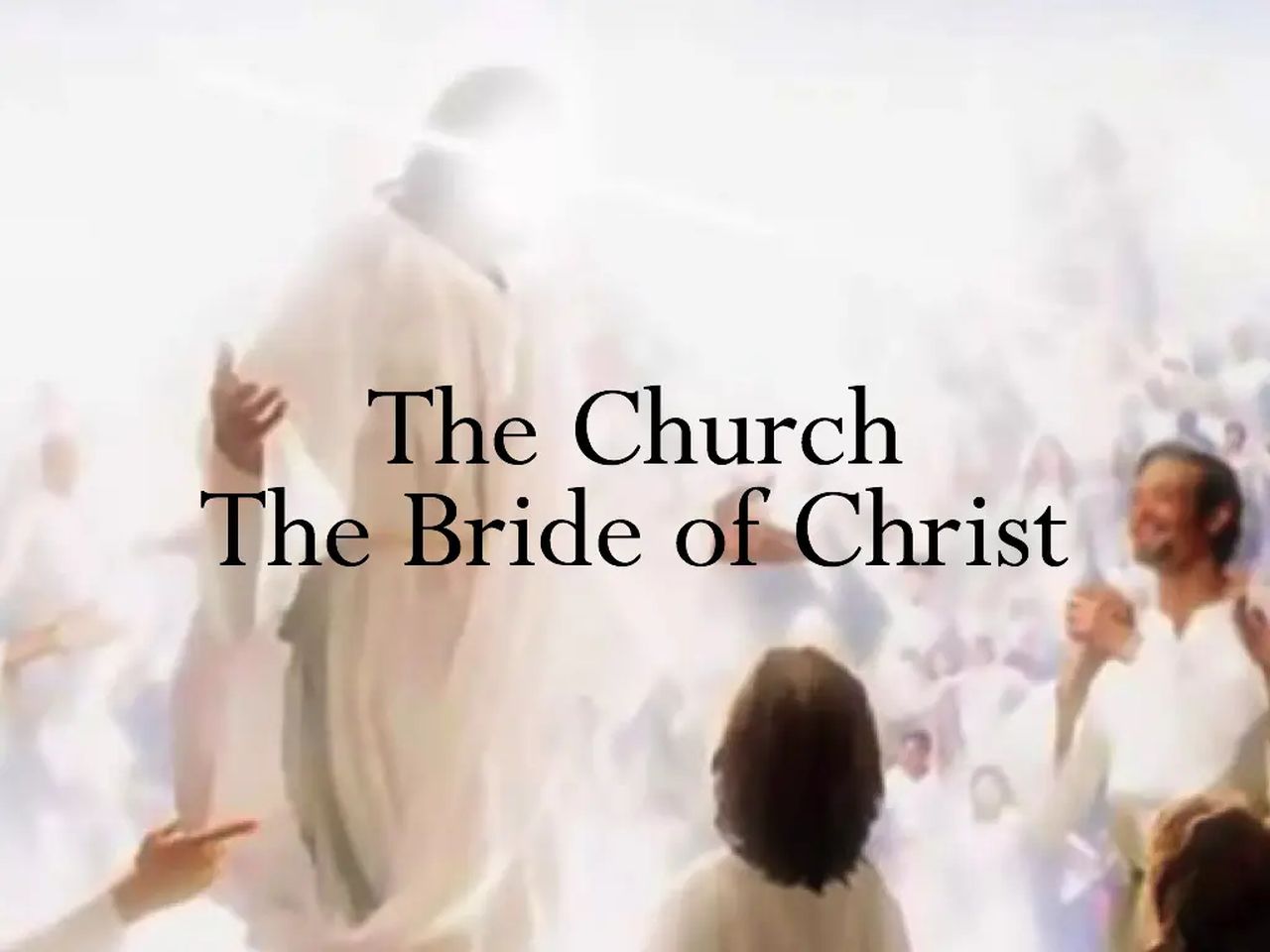


Apostasy
SATAN’S SEMINARIANS [podcast]

Seminaries are the Invention of Satan
WHEN Jesus declared “Ye have not chosen me, but I have chosen you, and ordained you, that ye should go and bring forth fruit, and that your fruit should remain: that whatsoever ye shall ask of the Father in my name, he may give it you” (John 15:16), …. was Jesus speaking here of men who “earned” and paid big money for a degree, a piece of paper from a “higher learning” institution of mere men? No. Read John 15:1-16 and you will see that Jesus alone can choose, call, prepare, and ordain a man to be fruitful in His work. The LORD’s work is to choose, to call, prepare, ordain, purge, and to send for the divine purpose of “fruit …. more fruit… and much fruit” to be born in the lives of those men He is using.
Biblical Case against Seminary: Save Your Money and time – Go to the Savior, Not Seminary!
It should be noted that in God’s Word, where the specific qualifications for elders are given, not one of those descriptions includes having a degree from a higher learning institution. See 1 Timothy 3 and Titus 1.
Seminaries originated with the catholic church—which is where the protestants got it. Sad but true. The curse of seminaries continues today. Beware saints. Seminaries are wolf factories. Think about it, the business model, it’s the denominations who have the seminaries. This is to train their prey to uniformly spread heresies and to build church businesses to collect money whereby those denominations are paid fees and a percentage of every dollar collected. Dallas Theological Seminaries forces enrollees from the beginning to sign a contract that avows them to not teach the biblical doctrine of enduring to the end. The eternal security heresy they peddle ensures much busine$$ success.
“Seminaries originated in the 16th century, primarily as a Roman Catholic response to the Reformation to better train priests, with the first established by St. Charles Borromeo in 1563. The term derives from the Latin seminarium (“seed plot” or “plant nursery”), symbolizing the cultivation of spiritual growth and faith.”
Any man who submits his life to a seminary has openly declared that he wants mere sinful men to train him to do God’s work instead of submitting his life to the LORD Himself—as did all the patriarchs, prophets and apostles—not one of them who was seminary trained (as we know such today). Yes the apostle Paul was formally trained BEFORE he was saved and then denounced all of it—all of his formal training after being saved and in preparation to serve the LORD. Read Philippians 3.
Let me get this straight…. You saved me LORD BUT I’m going to trust sinful men to train me at the seminary (Jeremiah 17:5).
God doesn’t send anyone to seminary. He never once sent any of the patriarchs, prophets, or apostles to seminary. “I am the LORD, I change not” (Malachi 3:6).
Many are led to believe the following lie: “I need to go to seminary if I want to be a preacher, pastor, or in the ministry.” Yes if you want to be just another false prophet, go to seminary. They are wolf factories.
The moment the LORD saves us, we are in His school of the Holy Spirit and Word.
Satan’s centralization of learning, indoctrination: when the source is poisoned, all that flows from that cursed source is poisoned—from the seminaries to the local churches.
YOU HAVE GOD’S WORD, A BIBLE, READ IT FOR YOURSELF.
The question of whether or not we should trust professional clergymen, seminarians and their supposed superior knowledge and understanding.
In Matthew 11:25 , God says that He reveals His truth, truths to even the babes in Christ.
Notice how that “from a child” Timothy knew the “holy scriptures” and the wisdom they give us. Timothy studied and knew and could understand God’s Word as a little “child.” No degreed seminarian needed.
“And that from a child thou hast known the holy scriptures, which are able to make thee wise unto salvation through faith which is in Christ Jesus. 16 All scripture is given by inspiration of God, and is profitable for doctrine, for reproof, for correction, for instruction in righteousness: 17 That the man of God may be perfect, throughly furnished unto all good works.” 2 Timothy 3:15-17
“Seminaries and Bible colleges absolutely do make men boastful and proud over a fake degree. Jesus calls His people to be servants and nothing more. I also think of Paul when he separated the true disciples from the synagogue because the Jews were in contradiction of the gospel. So he separated them and taught them in the Apostles doctrine (Acts 2:42). He trained them in the whole of the scriptures. And this resulted in the widespread dispersing of the gospel (Acts 19:9-10).” Karen Cochran
Upon saving you, Jesus put His Holy Spirit in you and inducted you into His school of the Holy Ghost and Word (Psalms 119:105). No one needs “Bible college” or “seminary” to read and obey God’s Word (King James Bible). Jesus told no man to “go to Bible college/seminary.” Seminarian and Bible college graduates pridefully boast of their degrees and positions, lording it over others….as if they are superior. Isn’t this where the clergy/laity rankings were furthered? Does this not go diametrically against the teaching of our LORD? Yes it does. See Matthew 20:24-28 and 23:8-12.
Think about it: Seminary trains men to lord it over others, while the preparation for ministry the LORD enacts teaches His elders to go forth as He did —to serve and not to be served (Matthew 20:24-28 and 23:8-12). The whole premise of seminaries is based on a lie—the lie of usurping authority that God never ordained you to have. This further underscores that the author of seminaries is Satan himself. See Isaiah 14:12-15.
“Excellent teaching. Thank you. I think of 2 Timothy 2:21 which tells us how we are made vessels fit for the Master’s use. In that passage nor any other, we don’t see the word seminary. Vessels of honor are purged in the fire of affliction. And sanctified internally by the blood of Christ to bring forth fruit for His glory. This is how we are prepared by the Spirit of God to be used by the Master! No seminary school can do that. It is entirely the work of the Spirit through our ‘obedience and the sprinkling of the blood of Jesus Christ’ (1 Peter: 1:2).” Karen Cochran
Seminaries, seminarians are Satan’s way of controlling the people via their clergy. No group is more famous for this than the Roman religion.
“While they promise them liberty, they themselves are the servants of corruption: for of whom a man is overcome, of the same is he brought in bondage.” 2 Peter 2:19
Of the seminarian devils who litter the landscape of the American pulpits, Karen Cochran writes:
“And these apostate churches will only hire these wolves in sheep’s clothing Jesus warned us to beware of (Matthew 7:15). Therefore they don’t get men like the Apostles who gave their whole lives to preaching, warning, and teaching Jesus Christ! See Colossians 1:28. Then they died for the sake of Christ. The seminarian wolves of our day only preach about self, the self-life! They could care less about giving all for the sake of Christ!”
Only the cross, the crucified life, can keep us from sin (Romans 6:7; 1 Corinthians 9:27; 10:12). No amount of knowledge, even the truth, can keep us from sin. The truth of the cross Jesus commanded must be applied, obeyed—or you will not walk nor be with Him (Luke 9:23-24; John 8:31-32). The crucified life is something one will rarely if ever hear in seminaries or out of the mouth of seminarians.
Saints, we must follow Jesus. That’s why we have a Bible that He provided (Luke 4:4). We must cease with our idolatrous fascination with certain schools and men who seem to have a deep understanding of things. The idolatry of mere men will not keep us from living in sin.
Are you personally crucified with Christ?
If not, you ARE living in sin.
“He that is dead (crucified with Christ) is freed from sin.” Romans 6:7
Read Romans 6 each morning and obey God. | The Cross Life
One can have the whole Bible memorized and understand it all, and still die and go to hell. You must walk with Christ—live a crucified life of prayer—or you will perish irrevocably in the flames of eternal damnation. Judas walked with Jesus, he saw the miracles and heard His teachings first hand and died and busted hell wide open. The Truth about Judas
Professionalism is poison. There were no professional pastors in the early church. The seminary system is the factory that creates such business men, frauds (2 Peter 2:1-3).
The modern church world is driven by Satan’s seminarians: WHAT has it produced?
Are you a living, breathing epistle, a disciple of Jesus, or just another modern pharisee, a seminarian-deceived fraud who hides in a building while collecting a salary and misleading people to hell?
NO such thing as an “official” seminarian credentialed pastor or preacher in the early church! Beware. Satan’s seminary system exposed.
Notice how the unchanging LORD worked in Paul after He saved him:
“But when it pleased God, who separated me from my mother’s womb, and called me by his grace, 16 To reveal his Son in me, that I might preach him among the heathen; immediately I conferred not with flesh and blood: 17 Neither went I up to Jerusalem to them which were apostles before me; but I went into Arabia (the desert), and returned again unto Damascus. 18 Then after three years I went up to Jerusalem to see Peter, and abode with him fifteen days.” Galatians 1:15-18
Jesus is the Savior and Sanctifier—the only One who can prepare and ordain a man to ministry (John 15:16). Only three years later did Paul consult with men—AFTER God had spoken directly to him. The apostles were saved and taught of God, not mere sinful men.
“Despite God’s word commanding men not to boast in their wisdom, and despite being told that ‘not many wise according to the flesh’ are called, today’s evangelical landscape is replete with scribes and pharisees whose default question is, ‘By what authority do you do these things?’ They put their stock in how many credit hours they have obtained at such and such a seminary. Seminary credentials never qualified a man for God’s service, nor does a lack of “formal training” nullify what God approves. Indeed, God has chosen the foolish things of this world to confound the wise (1 Corinthians 1:27). When God calls anyone to a particular task, it matters not if others approve.” Servus Christi
YOU going trust a sinful seminarian or the only Savior? Hell awaits.
Many today, upon sensing a calling, go to men to be prepared, to seminary. Consequently, they are deceived and then go forth to deceive others (2 Timothy 3:7).
- The early church – Acts: On fire, full of the Holy Spirit had no trained seminarians.
- Today’s apostate, lukewarm church world: Run into the ground by vatican corrupted, hireling seminarians.
The fruit of the modern churches are Clear proof that Satan is at the root of the seminarians who’ve driven them into apostasy!
“Cursed be he that doeth the work of the LORD deceitfully, and cursed be he that keepeth back his sword from blood.” Jeremiah 48:10
Joel Nelson writes:
“It’s time to get rid of the corrupted clutter of the money-changing seminarian clergy wolves and get back to true, undiluted, uncorrupted, pure worship and fellowship (Acts 2:42-47). Ask yourself: WHAT has the seminary-driven church building based system ever produced to glorify Christ? Do those who attend look like the on-fire-for-Jesus, Holy Ghost filled believers you read about in the books of Acts? Hardly.”
Protestant evangelical seminarians are a fraternal order of vatican-trained soul thieves. They control what is and what is not said to the people. They purposely withhold the truth.
Most modern pastors are in darkness and that’s witnessed by the simple fact that they use and promote Satan’s false “bibles.”
Seminarian “pastors” do not follow Christ but rather they follow what men and devils taught them in seminary.
God is Calling all Seminarian and Bible College Students, Graduates to Repent
Attention seminarian or Bible College student, graduate: Not only does seminary not prepare you to be used of God, it gives you many things to unlearn and costs you much more than just a lot of wasted money. The ONE who saved you (if you are in fact saved) is the only ONE who can sanctify and prepare you to serve HIM. Seminary is at its root, apostasy, a departing from God to mere sinful men. If you claim to be born again and yet run to men to prepare you, there should be great concern (Galatians 1:16-17). PLAIN PROOF: Today’s apostate modern so-called “churches” become as they are – ichabod – by way of the jesuit-trained seminarian hirelings who drove them headlong into that apostasy. Seminiarian Apostasy Busted and Exposed!
Seminarian led churches are designed to create counterfeits. This was Satan’s objective and it’s worked! Run for your life!
Going to seminary is a deliberate work of the flesh—to trust mere sinful men instead of the One you claim saved you. Going to seminary means you are saying “LORD, you saved me but I need mere man to prepare me to serve You because LORD You are not able to do such!” Repentance needed!
“Thus saith the LORD; Cursed be the man that trusteth in man, and maketh flesh his arm, and whose heart departeth from the LORD. 6 For he shall be like the heath in the desert, and shall not see when good cometh; but shall inhabit the parched places in the wilderness, in a salt land and not inhabited. 7 Blessed is the man that trusteth in the LORD, and whose hope the LORD is. 8 For he shall be as a tree planted by the waters, and that spreadeth out her roots by the river, and shall not see when heat cometh, but her leaf shall be green; and shall not be careful in the year of drought, neither shall cease from yielding fruit. 9 The heart is deceitful above all things, and desperately wicked: who can know it? 10 I the LORD search the heart, I try the reins, even to give every man according to his ways, and according to the fruit of his doings.” Jeremiah 17:5-10
“Cease ye from man, whose breath is in his nostrils: for wherein is he to be accounted of?” Isaiah 2:22
Seminarians are taught half-truths, man’s philosophies, pagan/occultic practices (example: contemplative prayer, spiritual formation, etc.), marketing, the curse of calvinism, etc.). They are taught to conduct a church busine$$ and in order to do such you must entertain and intentionally dodge the hard truths Jesus and His apostles taught. | Richard Foster Exposed
“DON’T you dare share the truth about the cross! If you do, God’s people will wreak havoc on my kingdom! I’ve put my preachers in place for decades now so that this explosive message could be hidden! Now don’t you dare spoil my plan!” ~SATAN
SIMPLE QUESTION: Did Jesus ever once call anyone to a “higher learning institution”? No. So, to go the way of the flesh is to depart from God’s way and thereby give oneself over to the deception of Satan himself. Jeremiah 17:4-7 … anyone with an ounce of discernment can see that the visible modern church is apostate and it can only be due to the seminarian icebergs in those pulpits that there is lukewarmness at best in the pew. Such was never the divine intention for the truth church Jesus died to save and sanctify.
JESUS never once taught His disciples how to PREACH yet He did teach them to PRAY. Today, seminaries teach their students to PREACH but not to PRAY. Should we wonder why modern building-based churches are apostate?
Paul denounced his higher learning in order to know and serve Christ truly …. and his education makes today’s lame seminary training look like a kindergarten picnic…. Philippians 3.
“Jesus sent Paul into the seminary in the desert.” Stan Podlacha
ANY local church that requires a seminary degree to be a pastor there, is apostate. Ichabod! LOOK for yourself at the fruit of modern building-based “Christianity” commandeered by seminarians…. apostate, heretical, lukewarm, hell bound! … the fruit of seminaries! You can’t pay money to be prepared by God—you must “pay” by truly repenting, laying down your life, and following Christ in a daily cross walk! you have a Bible! Study it! Memorize Scripture! Obey God!
Genuinely born again truth-seeking disciples will repent today and denounce the sham of “higher learning”—trading it in for a real walk with Christ, full of His Word and Holy Ghost. That’s His only way of using men (John 15).
Professional clergy is a diabolical scheme. seminarians were Satan’s plan from the beginning to replace, to destroy God-ordained organic Bible study by Christians (Acts 2:42; Colossians 3:16, etc.). The LORD is calling us to repent and return to Acts 2:42 and Colossians 3:16 New Testament living!
SEMINARY is a shortcut and a time waster. Jesus sends men to the cross and to Pentecost—otherwise they are not prepared or sent by Christ, the only Ordainer (John 15:16). They are self-sent.
ANY local church assembly or organization that requires a certificate or degree is carnal, worldly minded and absolutely apostate. The Word says to “know them which labour among you” (1 Thessalonians 5:12), and when you know a man, you know if he is capable to teach God’s pure Word!
NEVER allow some corruptED seminary dupe override the WORD itself and common sense God gave you!
Satan’s Seminaries are a Sham! YOU show me a church “pastored” by one of Satan’s seminarians and I will show you a cold, dead, apostate sham!
History reveals that seminaries and seminarians are a curse. Those churches which require a seminary degree from their pastors are Ichabod, backslidden, lukewarm, and kindling for the fires of hell. Example: It is a historical fact that the methodist church, which was previously on fire via John Wesley only backslid when it began requiring a seminary degree for their pastors. The seminary agenda is not God’s. The enemy has hi-jacked those institutions long ago. Among other errant things, seminarians learn:
- “Den of thieves” Marketing—making merchandise of the people (Matthew 21:15-17; 2 Peter 2:1-3)
- False doctrines such as “eternal security” and Calvinism (Jude 3-4, etc.).
- Traditions of mere sinful men (Matthew 7:13; Colossians 2:8)
- Entertainment: How to be “relevant”—Seminarian pastors have traded in the cross to be cool and by doing so are sending themselves and those they mislead to eternal damnation.
- Ecumenism which is the amalgamating of true Christians with the antichrist cult of Rome/Catholic church.
Seminaries today manufacture and train cross-less counterfeits to “make merchandise of” that which calls itself the house of God. They are taught and sent out to make their franchise churches into a a “den of thieves.” (Matthew 21:12-17; 2 Peter 2:1-3)
Your education, gifting, seminary degree, title, and church building mean nothing in Christ’s kingdom until laid down and in true repentance you admit your own utter poverty and great, desperate need for the presence mercy, grace, and anointing of God. Repent and denounce it all as Paul did. Read Philippians 3 and obey the LORD by following the apostle Paul’s example. To prepare men, the un-changing Savior sent men to the cross and to Pentecost (baptism with the Holy Spirit). To obtain a seminary degree, a man must sell Christ out for the trinkets of this fleeting world and in doing so, such a counterfeit fraud has sold his eternal soul to the devil and will be used of Satan to mislead and damn the souls of many. Men only get degrees to get a church job and make money. Authentic disciples of Christ allow the Savior who found and saved them to sanctify, teach, and equip them by His Word and Holy Spirit (Acts 4:13, etc.). There is no such thing or example in the New Testament Scriptures of a man of God going to a higher learning institution to learn to serve God. Jesus never sent anyone to a seminary – but rather to the cross and Pentecost (baptism with the Holy Ghost). Seminary is clearly seen in Jeremiah 17:5-7. Grace and Truth Bible School Online
Salvador Cruz writes: “I don’t call anyone my pastor except Jesus Christ….. He’s my one and only Pastor, humans are my brothers and sisters.”
What Salvador Cruz states is Bible: That is exactly what Jesus taught beloved!
“But be not ye called Rabbi: for one is your Master, even Christ; and all ye are brethren. 9 And call no man your father upon the earth: for one is your Father, which is in heaven. 10 Neither be ye called masters: for one is your Master, even Christ. 11 But he that is greatest among you shall be your servant. 12 And whosoever shall exalt himself shall be abased; and he that shall humble himself shall be exalted.” Matthew 23:8-12
One disciples writes:
“I have found over the past number of years, as I have ‘answered a call’ from a church to be a pastor or teacher or whatever, I have mostly found that they are looking for the ‘whatever.’ Most of the churches that require a man-given degree are not looking for shepherds to feed the flock of God, but administrators to run the church after their likeness and their own carnal image. Their image by the way is usually the thing they care about most—numbers, programs, and ‘Do we look good?’ etc. No cross. Apostate. Ichabod. I have stayed at none of these churches because, other than running through the list in Timothy or Titus, most churches require no spiritual qualifications such as: Are you born again by the Spirit of God? Have you been baptized in obedience to God’s Word.? Have you made full proof of your ministry? Are you an ambassador for Christ? Do you see the need to equip the saints for ministry? If a church is not satisfied with the words of Jesus, Paul, John the Baptist, Amos, David, Isaiah and Nehemiah, they won’t want the likes of me.”
Read closely the words of Jesus recorded in John 15:16. HE ALONE can ordain you and so we do despite to the Son of God when we seek sinful man’s sham of an “ordination.”
A follower of Jesus writes:
“If God has called you to The Ministry, then God will provide the open door for that ministry. Ministry as it was first given to the Levites in the Old Testament was First a ministry UNTO THE LORD. Our modern age has forgotten that. Not all ministry toward man is pulpit in a church style. All believers have been called to ministry but most are not willing to obey that calling, instead desiring more, they seek the positional style of ministry.”
In the stated qualifications for an elder in the body of Christ, there is no mention of obtaining a degree from the world that claims to be of Christ via a “Christian” seminary (1 Timothy 3). I didn’t even hint that knowing the Word of God isn’t important YET WHO EVER SAID YOU NEED SEMINARY FOR SUCH? Only a lazy fraud feels the need to pay a seminary tens of thousands of dollars to be indoctrinated by devils. BIBLICAL CASE AGAINST SEMINARY: SAVE YOUR MONEY AND TIME—GO TO THE SAVIOR, NOT SEMINARY! Jesus learned the Word without the human and demonic pollution of seminary (John 7:14-16).
SO, you claim JESUS saved you but then denied the Son of God the place of sanctifying you? So, you signed up to pay big money to get mere sinful men in a seminary to teach, prepare, and equip you? Time to repent and return to Christ before it’s too late.
Seminarian sissies use sissy Bibles. The last thing they use is the real Bible —The King James Bible. Counterfeits use catholic corrupted and controlled counterfeit “bibles.”
Scott Boyd writes:
“It was the history surrounding the evil antichrist Catholic Church and how the majority of all the other churches follow many of their antichrist teachings (those of paganism and sun worship customs) instead of following what is clearly taught in the Bible, that sent me down the road of searching for truth. While doing so I completed hundreds of different Bible studies from every denomination I could find and with that said, I found that nearly all of them taught only bits and pieces of watered down Scripture and doctrine, and instead, there were many of the antichrist examples of the Catholic Church in their teachings. Very few actually taught the truth about Scripture. Unless someone does deep research, they will never know the truth because the teachers of false doctrine and deception mix the lies with truth, so it sounds pretty good at first, but they leave out the main substance of the Truth of God’s Word. I have seen this over and over through many studies. It Definitely takes a thorough study of the Bible in order to be able to detect all the false doctrine and deception that is involved in nearly all of the churches.”
Nancy Cote writes:
“Spoken like a true Shepherd being taught to love God’s Word and fear God and NOT man! God, my prayer is that you would bring TRUE repentance and salvation to these cemetery motivational speakers. God is shaking and exposing what is not of His Spirit. WOF, NAR, Seeker Sensitive/Emergent, Southern Baptist etc. I pray that we can get just one true repented heart out of each bunch to call out sin in the camp for what it is.”
MESSAGE RECEIVED:
“Some seminaries who indoctrinate with their presupotionalist theology are really bad, but some folks just go to learn about everything that has been taught. Education rather then indoctrination. You don’t need seminary to be anointed but if your gonna teach dogmatic about what Scripture means you should learn a bit about how to get context and such.”
REPLY:
Hi Kevin. God bless you. Inevitably there is definitely going to be indoctrination. There’s actually no reason to waste so much time and money on going to seminary when all the books (NT/OT surveys, etc) can be bought anywhere Christian books are sold. Commentaries are readily available. Simply diligently studying the King James Bible daily is all one needs along with studying with brothers and sister in small groups. This is the stated, divined-revealed design for Christ’s New Testament church and so everything else is counterfeit (Acts 2:42; Colossians 3:16).
MESSAGE RECEIVED:
“It is important to have a degree in theology from a university or Bible college which is recognized that shows you are a man of study… so many fall away and don’t finish their studies including pastors and their wives… It’s the same as saying we hire apprentices only on a construction site until the building crashes.”
REPLY:
No, that is not according to the New Testament but rather mere human reasoning. Among believers we are to “know them which labour among you” (1 Thessalonians 5:12). We have no hint much less instruction to go to a higher learning institute of men. In fact God hates centralizing learning which is what we saw at the tower of Babel in Genesis, right? God scattered. Satan loves centralization because then he can control what is taught such as we see in the demonic public school system. Also, you assume a man can’t study Scripture individually and with the body of Christ in his immediate location. THAT’S exactly what New Testament believers are instructed to do and that the earliest believers did (Acts 2:42; Colossians 3:17).
MESSAGE RECEIVED:
“Seminaries exist because of what Jesus Christ and his disciples did! They are for the training of leadership for the church!”
RESPONSE:
Seminaries today are not teaching the original Gospel and are in fact bringing in occult teachings such as contemplative prayer which is part of spiritual formation…. which is transcendental meditation … lighthousetrailsresearch.com … We have a Bible and the Holy Ghost….. no need for the training of mere sinful men to do God’s Word.
Pastors | Prepared to be Used | Satan’s Seminaries | Support | STORE | Podcasts | Eternal Security/OSAS | Accounted Worthy to Escape [podcast] | Eternal Security Exposed | Sealed? | The Return of Christ | Lie of the Ages [podcast] | 10 Questions about Eternal Security | Is Salvation Eternal? | The Damning Myth of Unconditional Eternal Security [podcast] | The Essential of Fearing God | The KING is Coming [podcast]
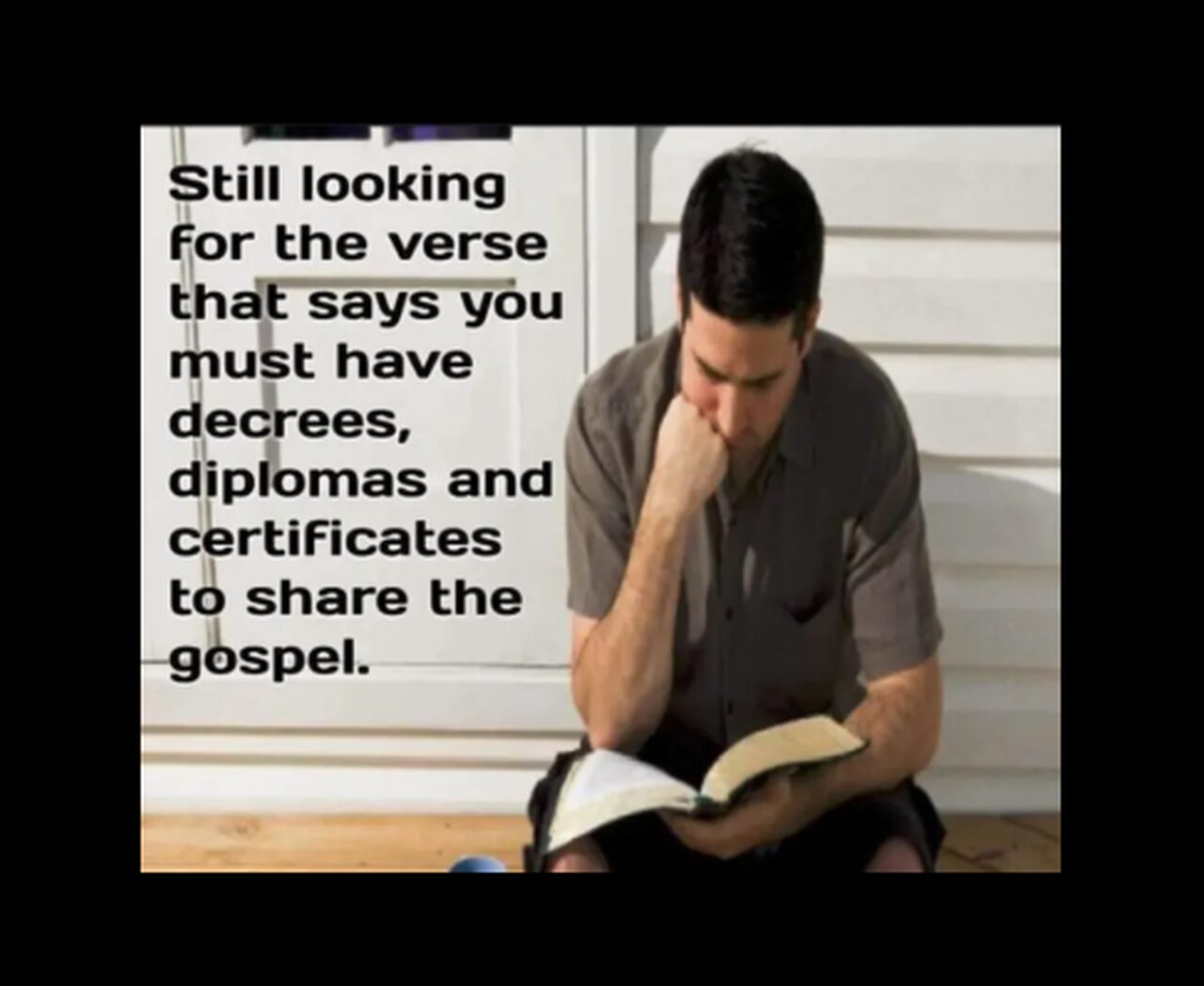
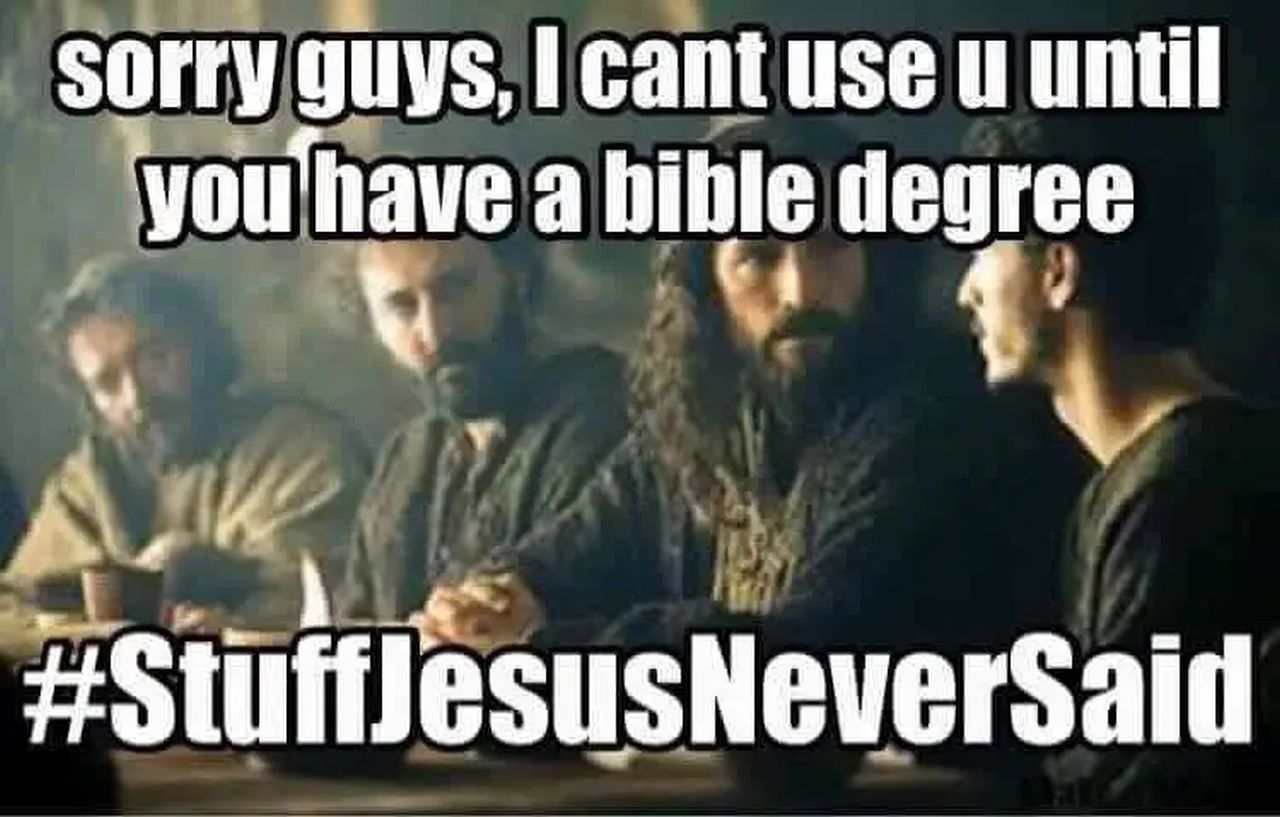
-

 America11 months ago
America11 months agoThe Drugging of America: The Pharmakeia Sorcery Deception [podcast]
-

 Articles2 years ago
Articles2 years agoChildren being Rescued in Tunnels: Happening Now – UPDATE!
-

 Articles8 years ago
Articles8 years agoSelf-Examination in Preparation for the Lord’s Return
-

 Apostasy2 years ago
Apostasy2 years agoSHOCKING List of False Prophets Most Believe are True


































